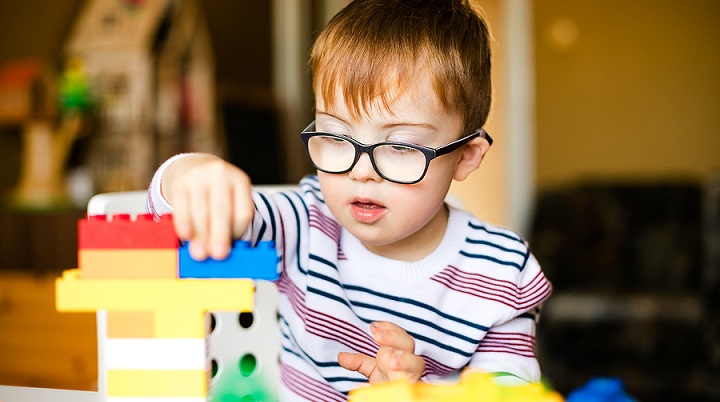Despite the fact that over 2 billion people around the world have a disability, they rarely appear in mainstream marketing campaigns and often can’t buy products that meet their needs outside of specialty stores. But that is slowly starting to change. Last year, Lego started offering audio and Braille building instructions for some of its build sets, and Mattel introduced a new line of Barbies with disabilities. Recently, Kmart Australia and New Zealand became the latest retailer to make
o make its toys more inclusive with the launch of a new range of dolls with disabilities in September, including a hearing-impaired doll and one with a prosthetic leg. And this week, it debuted ‘Baby Charlie’, a doll with Down Syndrome.
“We want all of our customers (especially our littlest ones) to be able to find products they can truly relate to; and we’re committed to championing inclusion and diversity to make sure this happens,” John Gualtieri, Kmart’s retail director in ANZ, said in a statement.
That means more accurately reflecting people of different ages, genders, ethnicities, abilities and sexual orientations in the toys and dolls the company sells.
“We’ve been on a journey with diversity for some time and are proud to have increased our representation of diverse dolls in store…but we know there is always more work to be done in this space,” he said, noting that new dolls are in development for next year.
Kmart is making inclusive toys more accessible. Image: Kmart.com
‘It really includes him in society’
Better representation of people with disabilities can help normalise disability. Because despite the fact that as many as 200 million people around the world have an intellectual disability, and 75 million people need a wheelchair on a daily basis, there is still a stigma attached to being different.
For Julie Mathers, the founder of eco-friendly online retail business Flora & Fauna, whose 21-month-old son Woody has Down Syndrome, Kmart’s ‘Baby Charlie’ doll is a meaningful step towards inclusion.
“I think for Woody, it will really help him to stake his place in the community. As he grows up and matures, he’s going to start asking questions about why he looks different. For him to have a doll with Down Syndrome, it really includes him in society,” she told Inside Retail.
“That’s what I want for him. To have the opportunity to not be looked at and stared at because he’s different.”
Mathers pointed out that all kids, not just those with disabilities, can benefit from seeing more inclusive toys like the ‘Baby Charlie’ doll available in stores.
“It shouldn’t just be for Down Syndrome children to have. It should be for all children to illustrate that there are people who are different to you out there in society,” she said.
The fact that a mainstream retailer like Kmart is making these dolls available at an accessible price point ($6 for the hearing-impaired doll and doll with a prosthetic leg, and $15 for the ‘Baby Charlie’ doll) is an important milestone.
“It’s really forward-thinking of them,” she said.
Fear of getting it wrong
For many of the businesses making their marketing and product ranges more inclusive, it’s just the right thing to do, but there’s also a growing commercial case for it. More than two-thirds of millennials (68 per cent) are more likely to buy from brands that offer inclusive product ranges, according to Accenture.
And when it comes to toys in particular, Australian market research firm Play believes a “surge in demand for global inclusivity” will be one of the big drivers of the global industry in 2020.
A fear of getting it wrong, however, might be preventing more brands and retailers from getting on board. And it’s not completely unfounded. While the ‘Baby Charlie’ doll has been widely praised by members of the Down Syndrome community, some people have voiced concerns about some of the visual aspects of the doll.
“We hope that Kmart will review this feedback and take it on board to develop other dolls with Down syndrome in the future which are representative of a wider range of children who have Down syndrome,” a statement from Down Syndrome Australia said.
As a retailer, Mathers understands the challenges around becoming a more inclusive business.
“I think this will absolutely be difficult for many because lots of people don’t have experience with it – they don’t know anyone with a different ability,” she said.
But that’s not an excuse to avoid the issue, she said.
“There are so many great charities out there. Do your research and talk to people with different abilities.”

